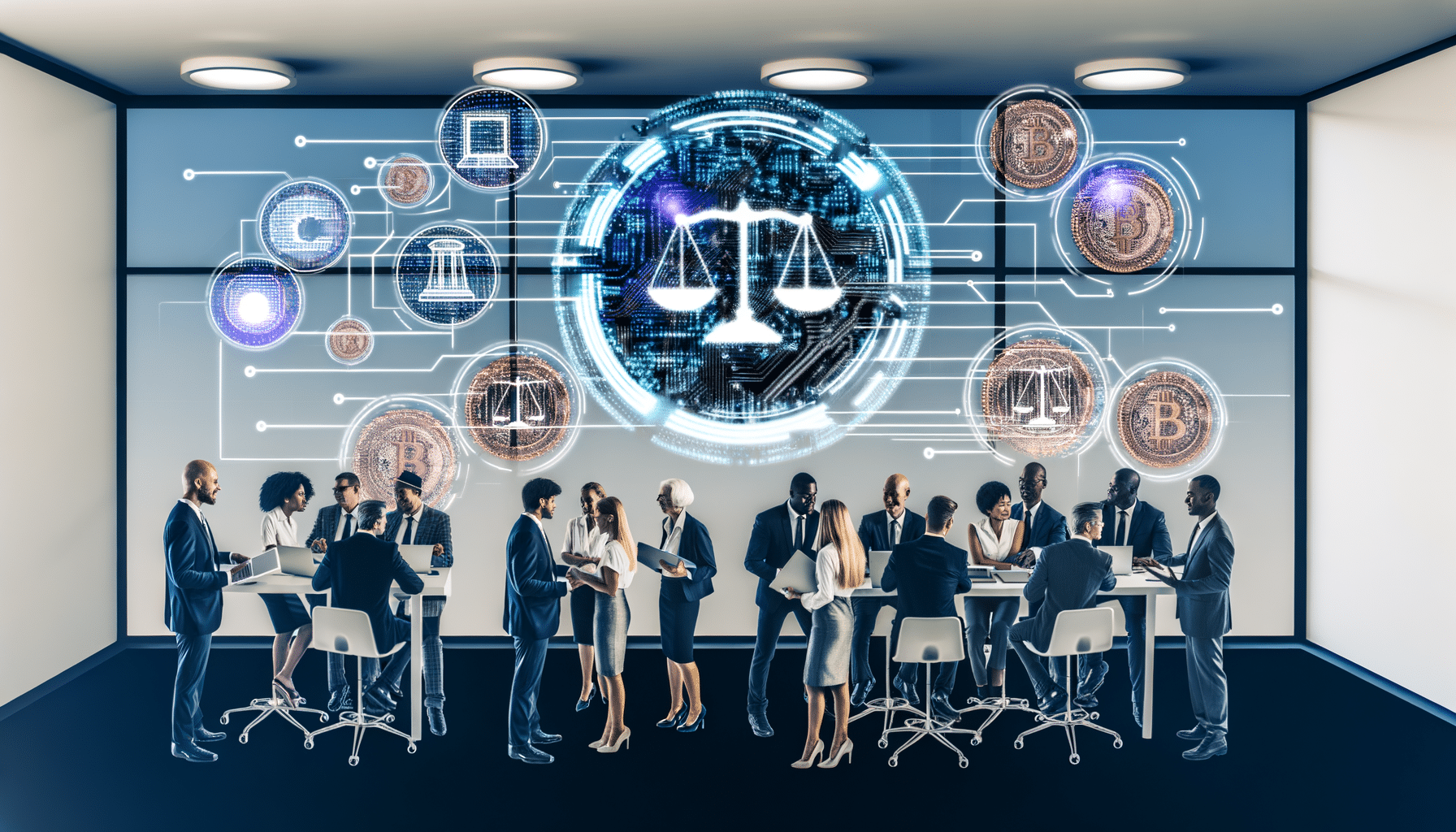Exploring the Legal Landscape of Blockchain-Based Records
In my journey as the founder of RecordsKeeper.AI, I’ve witnessed how traditional record management systems falter under the weight of modern demands. Businesses and legal entities alike grapple with challenges ranging from security breaches to compliance failures. Enter blockchain technology—a beacon of hope for those seeking reliable, tamper-proof records. But before we fully embrace this innovation, it’s crucial to dissect the legal implications associated with blockchain-based records.
Understanding Blockchain in Record Management
Blockchain technology serves as a decentralized ledger, ensuring data integrity through immutable records. When applied to legal record management, blockchain can transform how we handle crucial documents, providing an unprecedented level of security and transparency. But as with any emerging technology, it brings a spectrum of legal considerations that must be addressed.
The Essential Legal Considerations
Switching to blockchain for record management isn’t just a technological shift; it’s a legal transformation. Here are key aspects that need our attention:
- Data Privacy: Legal requirements such as GDPR mandate stringent privacy protections. While blockchain’s immutability is a strength, it challenges the right to erasure—a foundational element of privacy laws. Entities need to thoughtfully navigate these regulations, ensuring lawful compliance.
- Regulatory Compliance: Compliance isn’t static. Legal standards shift, often creating a challenging landscape for blockchain applications. It’s imperative to stay informed and ensure that blockchain implementations facilitate ongoing regulatory adherence.
- Jurisdictional Variance: Legal records span diverse jurisdictions, each with unique regulations. Blockchain enables borderless transactions, which can complicate jurisdictional compliance. Determining applicable laws and adjusting practices accordingly becomes crucial.
- Evidential Value: For records to be admissible in court, they need to meet evidential standards. Blockchain’s verifiable audit trail is a boon here, but its formal acceptance in legal proceedings remains nascent. Engaging with legal advisors to corroborate blockchain-based documentation is recommended.
Blockchain’s Role in Advancing Compliance
The irony is that while blockchain introduces legal challenges, it simultaneously offers solutions—specifically in compliance:
- Auditability: Blockchain’s transparent history provides an audit-friendly environment, allowing auditors to trace every action performed on a recorded asset.
- Smart Contracts: Automating compliance workflows through smart contracts ensures adherence to regulations, triggering necessary actions like notifications, validations, or penalties without manual intervention.
Compliance Made Easier
Blockchain can assist in automating compliance with standards such as SOX, HIPAA, or other industry-specific regulations by embedding regulatory requirements directly into the record-keeping process. This seamless integration not only reduces the likelihood of non-compliance but also offers peace of mind to legal stakeholders. With blockchain, compliance is not only about meeting standards; it’s a proactive measure that becomes part of the organization’s DNA.
The Road Ahead: Transitioning to Blockchain-Based Records
The decision to adopt blockchain for legal records should be strategic, involving a comprehensive assessment of potential risks and rewards. A few guiding steps include:
- Conducting a Legal Audit: Understand the legal frameworks affecting your industry and assess how blockchain can align with these requirements. Consult legal professionals to guide the alignment process.
- Involving Stakeholders: Engage compliance officers, IT teams, and legal advisors in the planning and implementation phases to ensure multifaceted requirements are met.
- Layering Security Measures: While blockchain is secure, complementing it with additional security protocols ensures robustness.
Final Thoughts and A Call to Action
Legal heads, compliance officers, and record-keeping authorities are venturing into an era where blockchain can redefine record management. Embracing this technology involves a commitment to understanding its legal tapestry and preparing for an evolved compliance landscape. At RecordsKeeper.AI, we provide solutions that integrate blockchain seamlessly while maintaining legal compliance, positioning your organization at the forefront of innovation.
For your business to harvest the benefits of blockchain responsibly, knowledge and preparation are key. Pair this with a forward-thinking mindset, and the shackles of traditional record-keeping loosen, paving the way to a future ripe with possibilities. I invite you to explore how RecordsKeeper.AI can assist you through this transformative journey. Reach out, and together, let’s navigate the promising horizon of blockchain-based record management.








